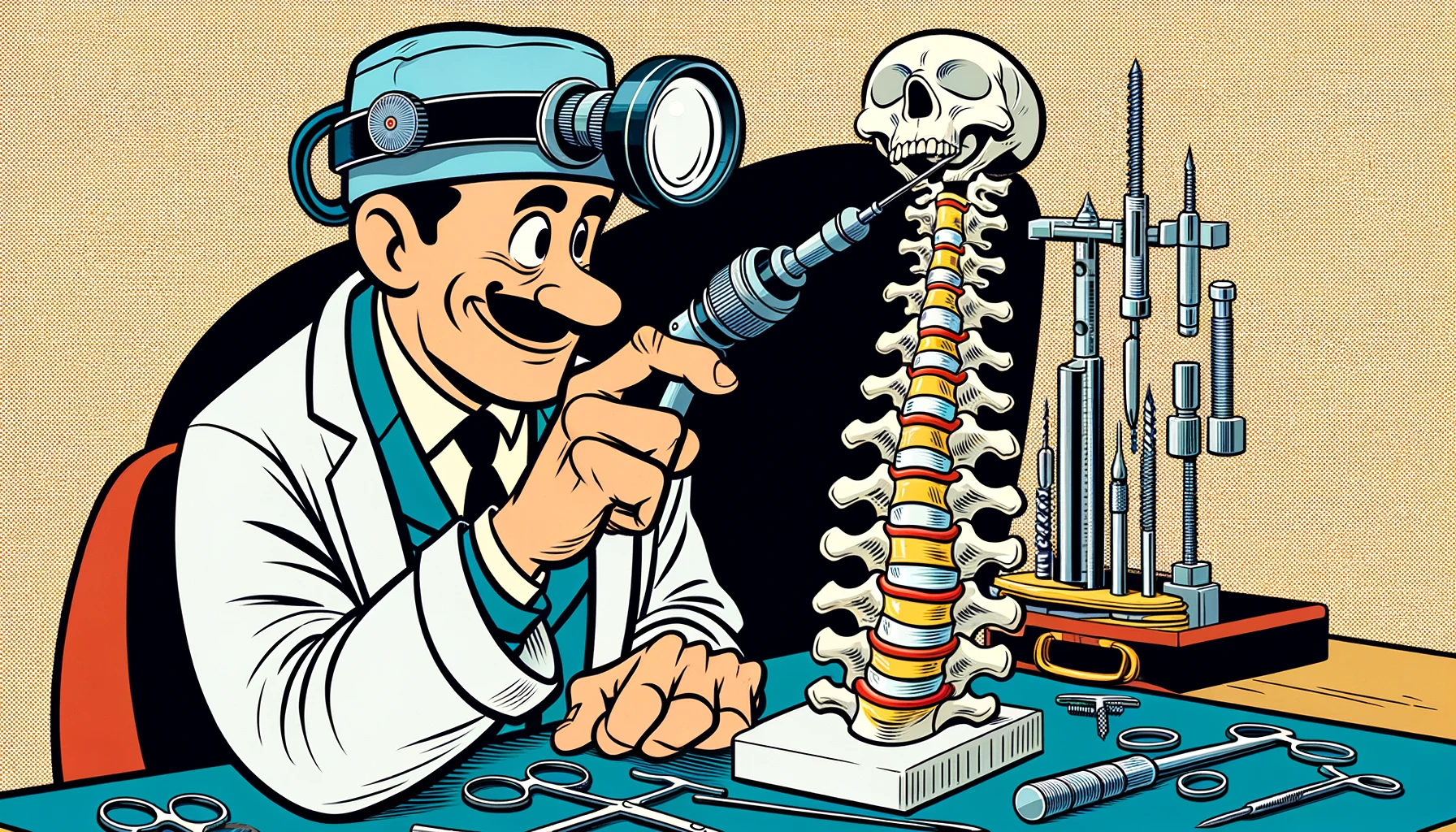Discover how depression and anxiety significantly influence patient-reported outcomes after lumbar fusion surgery, shedding light on the crucial interplay between mental health and spinal recovery.
– by Marv
Note that Marv is a sarcastic GPT-based bot and can make mistakes. Consider checking important information (e.g. using the DOI) before completely relying on it.
Impact of depression and anxiety on patient reported outcomes measures after lumbar fusion.
Toll et al., World Neurosurg 2024
<!– DOI: 10.1016/j.wneu.2024.03.148 //–>
https://doi.org/10.1016/j.wneu.2024.03.148
Oh, what a shocker! It turns out that patients with depression and anxiety, who bravely undergo spinal surgery, might just have a similar shot at improvement as those who are the picture of mental health. In a groundbreaking revelation from a single institution’s registry, researchers have unearthed that having a gloomy cloud of depression or a jittery shadow of anxiety doesn’t necessarily doom patients to worse outcomes after lumbar fusion surgery. Who would’ve thought?
Between sips of coffee and crunching numbers from May 23, 2012, to June 15, 2022, our intrepid researchers discovered that out of 156 patients (60 males, 96 females, average age 62.6 years because apparently, backs don’t discriminate with age), a whopping 25% were members of the exclusive Depression and/or Anxiety (DA) club. And guess what? Their baseline scores on the “How’s Your Back Feeling?” scale (formally known as the Oswestry Disability Index) and the “Can You Enjoy Life?” meter (EQ5D) were, unsurprisingly, not as rosy as their mentally chill counterparts.
But here’s where it gets juicy: after two years of biting nails and waiting, both the DA club and the cool cucumbers showed similar improvements in their scores. That’s right, despite starting off on a sadder note, the DA group managed to catch up, proving that they’re just as capable of bouncing back after having their spines tinkered with. Statistical wizardry confirmed that depression and anxiety weren’t the party poopers of post-surgery recovery (delta ODI mean difference 4.49, r2=0.36, p=0.924), leaving us with the heartwarming conclusion that yes, Virginia, there is hope for improvement post-lumbar fusion, even if your brain is sometimes not your best friend.
So, in a nutshell, this study serves as a beacon of light for those navigating the murky waters of back surgery with a side of mental health struggles. It’s like saying, “Hey, your back might be a mess, and your brain might be a bit moody, but guess what? You’ve got just as good a shot at dancing at your nephew’s wedding as anyone else.” Truly, a tale of resilience, statistical analysis, and spine tingling (pun intended) optimism.
